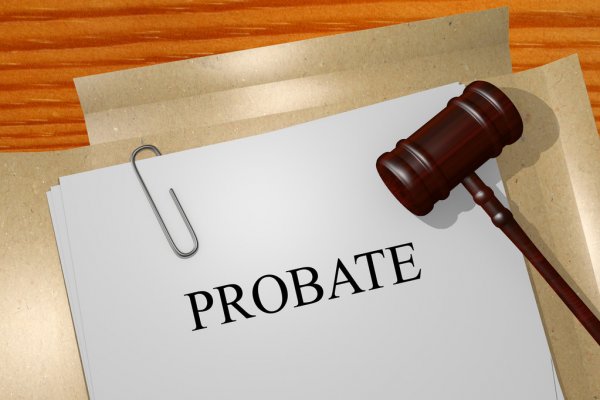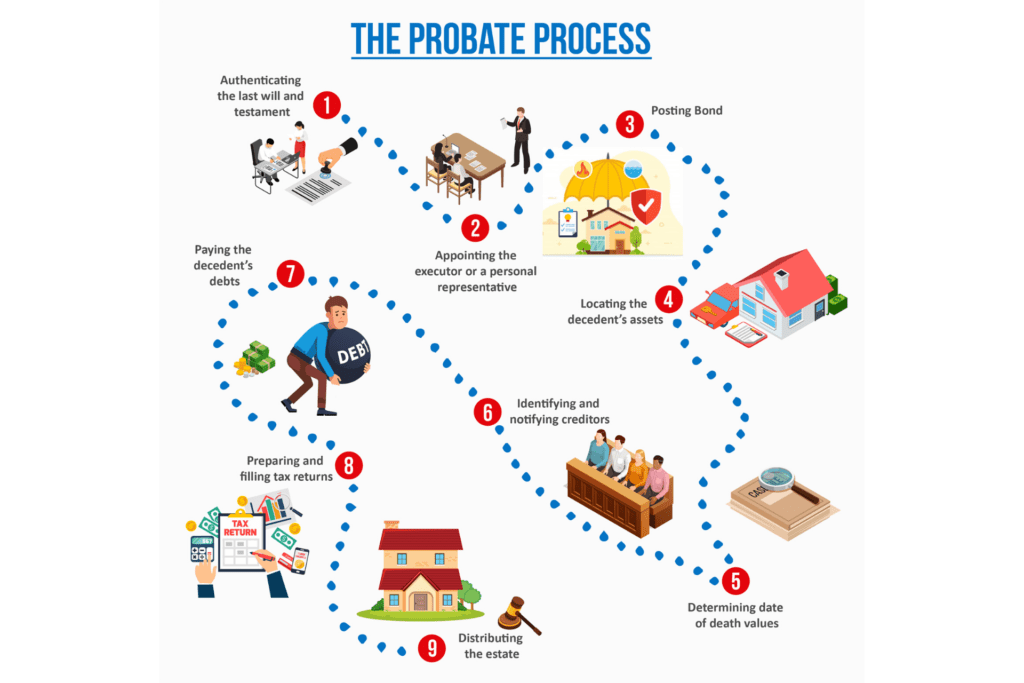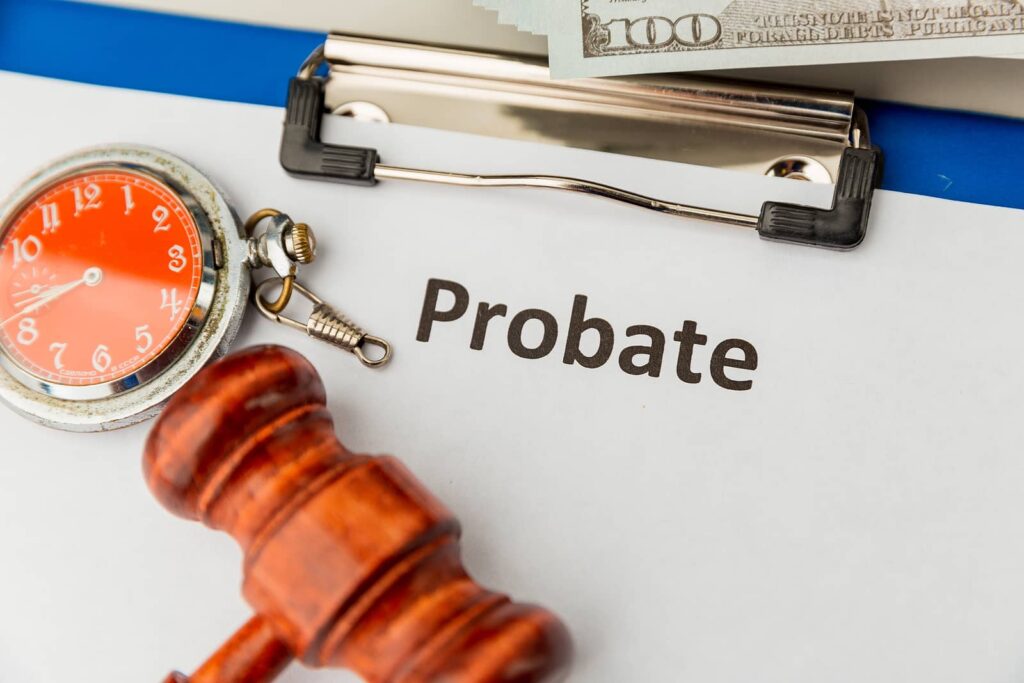When someone dies, his will (or will) must go through a process called Probate, and his property must go through a process called administration before it is handed over to the beneficiaries of the deceased. It is important to understand that not all properties in your property are under management. Only your property is a will. Property that is not the property of a will is dispensed with alternative litigation and goes directly to the beneficiaries of the deceased. To learn more about the impact of probate and probate administration on probate ownership, consult with an experienced New York City real estate attorney at CashBuyers. Investigating an inheritance case in New York can be confusing for anyone unfamiliar with the process. As such, it would be helpful for those involved in legacy to have a basic understanding of what this all entails. This complete probate guide will help answer your questions, so you are ready to navigate the New York probate process like a professional.

What Exactly is a Probate Property sale?
The sale of a will occurs when the current owner of the property dies, not wanting to transfer the house to an heir. The real estate attorney or his representative must sell the property to liquidate the asset and distribute the money received from the sale to family members. The sale of an estate is usually carried out by the estate court and occurs when the court puts the property up for sale on the market. While it seemed simple, once you decide to sell your will, things start to change.
Can I sell my home in Probate, New York?
Yes of course, you can, but the sale proceeds may not be distributed as well as you think. If you are the beneficiary of the estate, you can sell the property in the possession of the deceased, unless it is bequeathed by the beneficiary, to cover the costs of the inheritance.
After the house is sold and the proceeds are used to pay off debts and inheritance costs, the inheritance court distributes the remaining profits to the beneficiaries.
How To Sell a Probate House in NYC?
Selling a Probate house is not as easy as selling a house in New York. Not all property of a deceased homeowner also goes through a probate. Many estates can avoid a regular will by qualifying as “small estates” under state law. In the sale of a probate, a real estate attorney hires an experienced real estate agent to list properties in New York and sell the house. Although the price of this property will be significantly lower than their current market value, do not expect property owners to make any repairs before moving in because the property owner is no longer legally alive. This is a precautionary step taken by the court to ensure that the property is sold at the best possible price. The interested buyer must pay a deposit of at least 10 percent of the proposed value. The seller has the right to accept or reject the buyer’s offer. Once the seller agrees to the offer, the court must certify that it is a fair and honest transaction. The succession court will then approve the sale and its location.
Once the property is ready for a probate auction, anyone in the courtroom can bid at least five percent higher than the original. After the offer is accepted by the seller and the court, the administrator must send a notice of the proposed action to all heirs of the property. There is a fifteen-day time limit for the heirs to file any objections or disagreements in the notice.
It will be difficult to independently start registering the estate in the succession court, which will appeal the sale of the estate. You may need the help of an experienced probate practitioner or professional real estate agent to sell your property by probate without any hassle in New York.
What Is the Probate Process?
Probate involves several steps:
- Filing the probate petition. The executor must submit the original will and a certified copy of the death certificate along with the probate petition and other supporting documents to the alternate court in the county in which the deceased lived. There is a deposit fee based on the size of the estate.
- Give Notice. You’ll need to mail a notice that the estate is in probate to all creditors, beneficiaries, and heirs as required by the court.
- Inventorying the property. The executor must collect the decedent’s belongings and have them appraised as necessary.
- Paying outstanding debts and taxes. This includes mortgage payments, home equity loans, income taxes, property taxes, and other applicable accounts. If the estate does not have enough cash on hand to repay the obligations, assets may need to be sold.
- Distributing the remaining property as the will or state intestacy law directs. The distributees (the legal term for the heirs to the estate) are listed in the initial probate petition. They are served with a notice, formally called a citation, that requires them to submit to the jurisdiction of the Surrogate’s Court.
The exact rules governing probate in New York are set out in the Alternative Court Procedure Act (SCPA) and the Estate Powers and Trusts Act (EPTL). The probate process is a matter in the public domain under state law.
Legal documents that give a person the authority to act as an executor are called letters of will. The trustee may receive commission for the time and effort required to distribute the estate. The commission is determined based on the size of the estate.
When a person dies without a will, he is said to have died without a will. A family member or friend must petition the court for the right to act as a trustee, unless succession is necessary.

Should you buy a home in New York?
With America chasing crazy deals and offers for almost anything that can fall into their hands, the domestic probate market in New York has grown exponentially in recent years. You can list your property for sale by bequest at a price that is definitely less than the market value of the home. But before jumping to conclusions, there are a few things you need to know before buying a probate.
- Probate property is property that has no title because the landlord has already passed away without making a will for his heir. So don’t expect the estate court or the seller’s family to fix a leaking window or lost pool equipment. What you see is what you get when you sell a probate.
- Be sure to carefully review the detection. There can be many complex factors that cannot be seen with the naked eye. Get help from an experienced probate dealer to make sure everything is running smoothly and consistently.
- The representatives will make the final decision of the court. Make sure you are in person at the court hearing.
- Since there is no contingency when selling a will, the seller does not have to wait for you to find a loan or sell your existing home. You can get prior approval from the current owners of the property.
- Working with a real estate agent or inheritance expert will always help you move forward with your purchase. New York City real estate agents can provide you with probate sale packages to streamline the entire process. While any agent can represent you, only a probate salesperson can reassure you that the deal is right so that you get the property and conditions you need.
State laws:
An important aspect of buying or selling a probate property in New York is understanding the legal details of the process, which can vary from state to state. If a loved one dies without a will, the death is known as no will. Although the personal representative was notified that they were now in charge of the estate, most of them did not know what to do next. If you find yourself in such a situation, the importance of quick action in this matter cannot be overstated. There are forms that need to be used for the process and specific time frames that need to be followed. You will find that you need to learn everything you need to know about the process by jumping through legal hoops to sell a house by will. The added pressure of complying with urgent legal requirements on a timetable and a tough time of mourning can be overwhelming. If handled improperly, the transaction may be invalidated.
Final Thoughts:
It is very difficult! Buying or selling a bequest in New York can leave the inexperienced person very lonely, and sometimes even legitimate, assaulted by the heirs, leading to costly mistakes. There is a lot of information to be learned, and all this in the process of a probate case. Filling out forms to use the probate process is not an easy task. Not to mention the stress of the approaching deadline. Let the professional take the weight off your shoulders. It is important to satisfy your transactional needs. You should feel that they are listening to you and ready to meet your needs. They should be happy to explain each step of the process. They should be able to tell you how many other people have helped in the process. They should have a team of trusted professionals to do everything for you, from initial cleaning, property maintenance during the life of the will, and any other work that needs to be done. Their team of experts should be available immediately to support you from start to finish.






